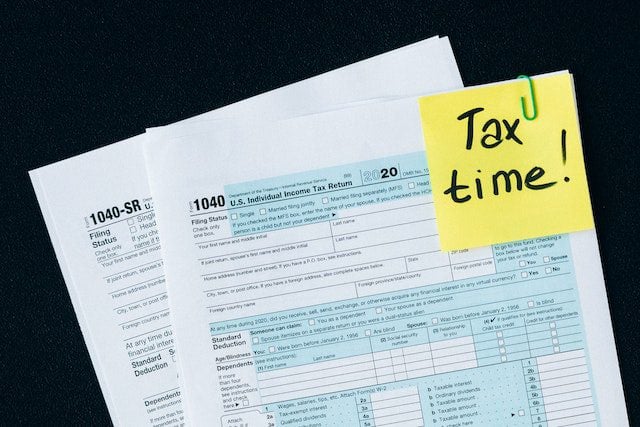Employee Retention Credit Scams: Safeguard Your Business From ERC Scam
Protecting the financial integrity of your business requires a comprehensive approach to security. In recent years, an alarming trend of ’employee retention scams’ has been observed, prompting businesses and tax-exempt groups to exercise extra caution and consult with ERC pros. This article aims to shed light on this predatory practice and provide you with strategies to safeguard your organization.
Understanding Employee Retention Credit Scams and Other Pandemic Tax Refund Credit Scams
An employee retention scam involves fraudulent schemes wherein scammers manipulate businesses into improperly filing claims related to the Employee Retention Credit (ERC). The ERC is a tax credit designed to encourage businesses to retain employees during periods of financial stress or economic downturn. Unfortunately, some individuals and groups exploit this benefit, causing significant harm to unsuspecting businesses and tax-exempt entities.
Scammers typically promise substantial tax refunds and offer to assist businesses in applying for ERC. They misrepresent the eligibility criteria and the application process for this tax credit, leading businesses to unknowingly file fraudulent claims. The outcome can be dire for these businesses, including significant penalties and the possibility of losing their tax-exempt status.
Warning Signs of Employee Retention Credit (ERC) Scams
The first line of defense against employee retention scams is to identify the warning signs. If an offer seems too good to be true, it probably is. Here are some common red flags:
- Unsolicited offers: Scammers often initiate contact, offering their services to help businesses claim the ERC. They may use high-pressure sales tactics and insist on urgency, leaving little time for you to research or seek advice.
- Promising substantial refunds: Scammers lure businesses by promising significant tax refunds, far exceeding what they might typically expect from the ERC.
- Misrepresenting eligibility criteria: Scammers will downplay the eligibility requirements for the ERC, suggesting that every business can claim the credit, which is simply not true.
- Requesting upfront fees: Scammers frequently ask for upfront payment or a percentage of the promised refund before filing the claim.
- Reluctance to provide credentials: Scammers often hesitate to provide credentials or references, and may insist on working without a written agreement or contract.
Steps to Avoid Employment Retention Credit Scams
Avoiding employee retention scams requires diligence, knowledge, and often, professional advice from an ERC pro. Here are some strategies:
- Verify the source: Always verify the legitimacy of any organization or individual offering tax-related services. Use online resources to check for professional licenses, credentials, and any complaints or disciplinary actions.
- Understand the ERC: Familiarize yourself with the eligibility requirements and application process for the ERC. Remember that not all businesses qualify for this credit.
- Avoid high-pressure sales tactics: Be cautious of any person who insists on urgency or uses high-pressure sales tactics. It’s essential to take your time to research and understand the implications of claiming the ERC.
- Consult with an ERC pro: Before filing any claim, consider consulting with a tax professional. They can provide accurate information and help you navigate the complexities of the tax laws.
- Report suspicions: If you suspect a scam, report it immediately to the IRS and your state’s tax agency. This not only protects you, but also helps to safeguard others.
Conclusion
In an era where financial scams have become increasingly sophisticated, businesses and tax-exempt entities must remain vigilant. The harm caused by employee retention scams extends beyond financial loss; it can lead to significant penalties, damaged reputations, and loss of tax-exempt status.
While the IRS continues its efforts to curb such fraudulent practices, businesses must also take proactive steps to guard against these scams. Understanding the warning signs of employee retention scams and following the suggested steps to avoid them can go a long way in securing your organization’s financial health.
Remember, knowledge is power. Staying informed and being skeptical of too-good-to-be-true offers is your best defense against these scams. Be diligent, be cautious, and protect your organization from falling victim to employee retention scams. If in doubt reach our to our team of ERC pros at The Tax Defenders.
Do You Qualify for the Real ERC Program?
Despite the best efforts, understanding the nuances of tax laws, including the Employee Retention Credit, can be a daunting task. Given the prevalence of employee retention scams, it’s crucial to receive accurate, reliable advice from qualified professionals.
The Tax Defenders is a team of expert tax attorneys committed to helping businesses navigate the complexities of tax laws, credits, and deductions. A team of ERC pros, their mission is to safeguard businesses from falling victim to scams while ensuring they receive all legitimate tax credits they’re entitled to.
If you have any questions or doubts regarding the Employee Retention Tax Credit, we highly recommend you to reach out to The Tax Defenders. Their experienced tax attorneys will provide a FREE consultation, helping you to understand whether your business qualifies for the tax credit and advising you on how to claim it lawfully and correctly.
Don’t let uncertainty or the fear of scams stop you from exploring your options. The Tax Defenders’ free consultation is an opportunity to get your questions answered and ensure your business is on the right track. Reach out to them today, and take a confident step towards protecting your business and maximizing your benefits under the tax laws.
Related questions
What is the IRS warning about ERC scams?
As a seasoned tax attorney, my practice has guided me through the intricacies of the IRS agency, unveiling its mysteries and navigating its conundrums. One that currently stands at the forefront is the intriguing case of the Employee Retention Credit (ERC) scams.
Imagine this, you’re a business owner, beleaguered by economic turbulence, and suddenly, a financial lifeline materializes. An unsolicited guide, a so-called tax expert, offers you the golden ticket to significant tax refunds via the ERC. This silver-tongued charlatan assures you, with absolute certainty, that your business is eligible. Who wouldn’t be lured by such a financial windfall?
Here’s where the IRS sirens blare their shrill warning. The ERC isn’t a one-size-fits-all solution. It’s a nuanced instrument, only for eligible businesses hit by specific pandemic-related circumstances. This phantom lifeline isn’t just a harmless illusion; it’s a treacherous quagmire that could ensnare you in fraud allegations, penalties, and a potential loss of your tax-exempt status.
So, the IRS’s warning is clear: Beware of these ERC scams. They’re not simply the IRS playing the strict schoolmaster role; it’s the financial equivalent of shouting, “Beware of the dog!” The agency is waving a red flag, cautioning us to steer clear from false claims and shady practitioners promising illusory tax windfalls.
As it turns out, not all that glitters is gold – sometimes, it’s just cleverly disguised pyrite. Take it from a veteran tax attorney: it’s best to double-check before taking a leap into the promising yet potentially perilous world of the ERC.
Has anyone received an ERC refund for 2023?
In my two-decade tenure as a tax attorney, I’ve seen many tax seasons come and go. They’re like the changing tides, each bringing a unique blend of uncertainty, frustration, and—for some lucky ones—relief. Amidst this tax-season symphony, one question I’ve heard echoing recently is: Has anyone received an ERC refund for 2023?
Now, before we plunge into that question, let’s get our bearings. The Employee Retention Credit (ERC) is like a bright beacon, guiding businesses through the foggy seas of economic instability. It’s not a universal GPS, though. It serves a particular class of voyagers—businesses that held fast to their crew amidst the raging storm of pandemic-induced financial hardship.
With the turning of the calendar to 2023, we find ourselves in uncharted waters. As per IRS regulations, the ERC ended on September 30, 2021. This, dear reader, is our first plot twist. If the ERC ended in 2021, how could there be a refund for 2023? It’s a bit like asking if we’ve discovered alien life—fascinating to ponder, but contrary to our current understanding.
However, let’s not dismiss the question outright. A small caveat exists for businesses who applied for the credit late or amended returns to claim it; they might still see a 2023 refund. But as a universal event? That would be a tax saga for the ages!
So, the short answer: Yes, in rare cases, there may be ERC refunds in 2023, but it’s as common as finding a unicorn at the end of a rainbow.
Is the employee retention credit legitimate?
As a veteran tax attorney, I often feel akin to an archaeologist, excavating the expansive ruins of tax laws to unearth nuggets of truth. One such relic of truth I often come across is the Employee Retention Credit (ERC). But is the ERC legitimate? A tall tale from the tax crypt? Let’s dust off the legal jargon and dive into the facts.
First, a bit of history. The ERC emerged like a phoenix from the ashes of the COVID-19 pandemic. Born from the CARES Act of 2020, it’s not some fleeting mirage in the desert of tax law, but a bona fide oasis of financial relief for businesses. Now that’s a plot twist!
But here’s where our story takes a turn toward the macabre. As with any treasure, the ERC attracted its share of tax pirates, leading to a wave of scams. These scammers’ siren songs of guaranteed substantial refunds tainted the ERC’s reputation, casting it as the villain of our tale.
But let’s set the record straight: The ERC is as legitimate as the IRS itself. It was designed to help businesses keep employees on the payroll during the pandemic’s financial fallout. It’s like the noble knight in the tax saga, riding to the rescue of besieged businesses. But, just like you wouldn’t expect to find King Arthur’s Excalibur at a yard sale, the ERC isn’t a free-for-all. It has specific eligibility criteria and application processes.
So yes, the ERC is indeed legitimate. The scams, however, are the wolves in sheep’s clothing. As a wise tax attorney (and occasional storyteller), I urge you to be wary of those who promise more than what the ERC was designed to provide. After all, even in the world of taxes, if something seems too good to be true—it usually is.
Is the employee retention act real?
Navigating the convoluted labyrinth of tax laws can often feel like diving headfirst into a Dan Brown novel—full of intrigue, mystery, and mind-boggling twists. One such puzzling protagonist in our story is the Employee Retention Credit (ERC), cloaked in doubt with many wondering, “Is the Employee Retention Act real?”
As a tax attorney with 20 years of delving deep into the annals of tax laws, let me unveil the truth. First, a note to our eager mystery solvers: technically, there’s no “Employee Retention Act.” It’s like searching for Bigfoot—interesting but futile. Now, brace yourselves for a twist in the plot: The Employee Retention Credit (ERC), however, is very real and fully operational. The ERC, born out of the Coronavirus Aid, Relief, and Economic Security (CARES) Act of 2020, is a genuine tax credit designed to help businesses retain their employees during the financial upheaval caused by the COVID-19 pandemic.
Imagine it as a life raft thrown to businesses drowning in the turbulent seas of economic instability. But like any adventure story, there are conditions to obtaining this golden chalice: specific eligibility criteria and the correct method of claiming it.
Our narrative takes a darker turn with the advent of scams centered around the ERC. They’re like the villains in our story, casting shadows of doubt over the ERC’s legitimacy. But make no mistake: while the villains are fake, the ERC is as real as the IRS that administers it.
So, dear reader, the answer is a resounding yes. The ERC is real and available to those who legitimately qualify for it. As for the Employee Retention Act? That remains as elusive as the Lost City of Atlantis.
Is ERC legit?
Picture this: You’re navigating the dense, dark forest of tax codes. Suddenly, you spot something glittering in the distance. It’s the Employee Retention Credit (ERC). But wait, is it legit? Or just another fool’s gold in the tax mines?
I’m here, your trusty tax attorney & ERC pro, with two decades of charting this wilderness. Let me shine some light on this question. Like a resounding gavel strike in a courtroom, let’s state this unequivocally—the ERC is legit.
Yes, it’s not a mirage but a well-intentioned act of relief birthed from the CARES Act of 2020, specifically designed to provide a lifeline to businesses grappling with the economic blow of the COVID-19 pandemic.
But in our tax tale, there’s always a villain lurking. The malevolent force here? ERC scams, casting a dark shadow on the ERC’s legitimacy, like a sneaky villain spreading rumors about our story’s hero. They’re the masked bandits in the alleyway, promising access to the ERC treasure chest without holding the actual keys.
So, my friends, the ERC is legit, like a lighthouse guiding the lost ships in the sea. It’s there to be claimed—but only by those who meet the criteria. It’s not a ‘get-rich-quick’ scheme, but a calculated part of the recovery process. So, if anyone offers you the moon and the stars with the ERC, remember: every rose has its thorns, and not all who wander in the tax wilderness are lost—but some certainly are misleading. Stick with the tried and true path.
Do you pay back the employee retention credit from the CARES Act?
You should regard the CARES Act and the Employee Retention Credit (ERC) as a lifeline thrown to businesses drowning in the turbulent sea of pandemic-induced economic chaos. But as a seasoned tax attorney who has sailed through the stormy waters of tax law for two decades, I often hear a worry ripple through the waves: Do you have to pay back this lifeline?
Here’s the twist in our sea saga—the answer is a resounding “no,” followed by a quiet “but.” Like a thrilling page-turner, tax law rarely comes without caveats.
The ERC, a part of the CARES Act, is a refundable tax credit. Now, let’s dive into what that means. A refundable tax credit isn’t a loan—it doesn’t need to be paid back like a debt to a pesky sea pirate. So, under normal circumstances, consider the ERC a gift from Uncle Sam to help keep your ship afloat.
Now, for the “but.” Suppose your business claims the ERC improperly—perhaps due to misleading guidance from shady figures claiming to be tax wizards. In that case, you might have to pay it back. Just like accepting an illusory map to a hidden treasure, it’s important to make sure the information guiding your ERC claim is reliable and accurate.
So, remember, while the ERC isn’t typically a debt waiting to pull you under, navigating the tax seas incorrectly can turn this life-preserver into an anchor. When in doubt, consult with a trusted tax advisor to ensure you stay on course.







